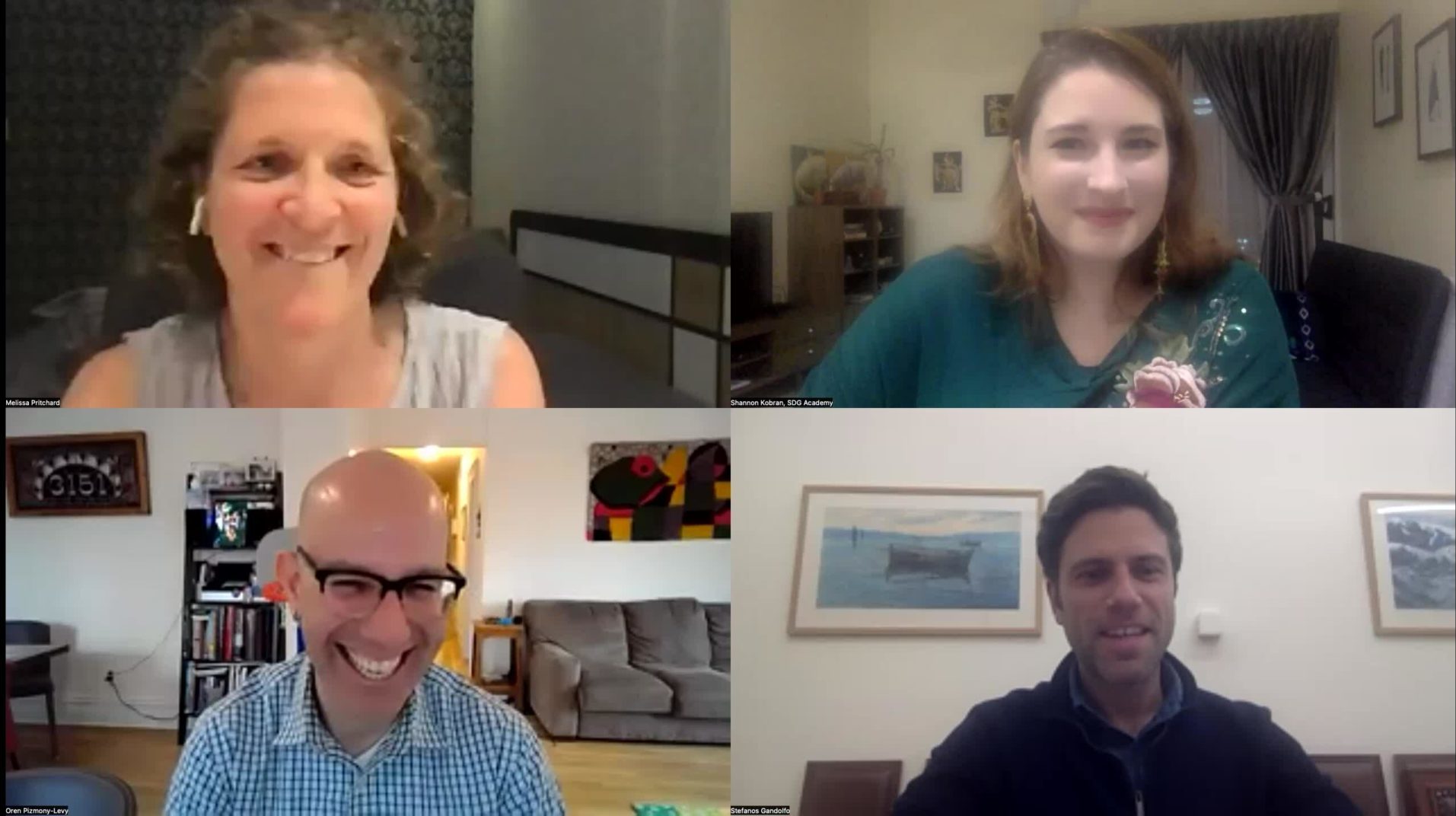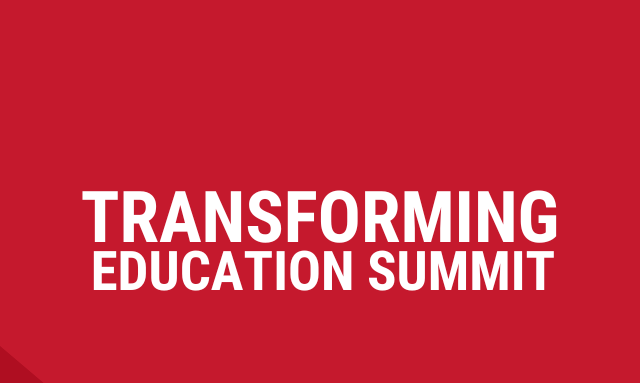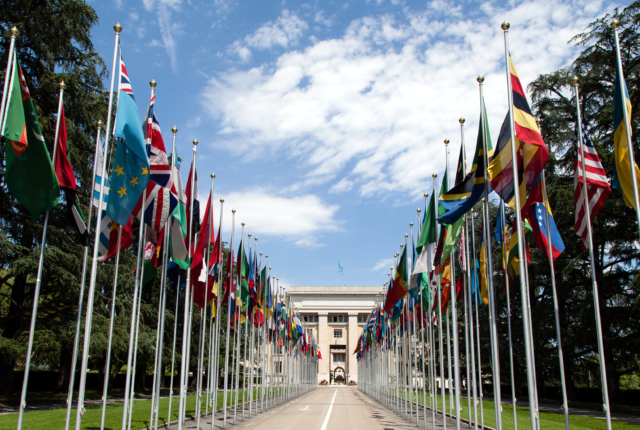On January 31, 2023, the UN 2023 ECOSOC Partnership Forum was held at United Nations Headquarters in New York, accompanied by several virtual side events.
Supporting the Forum’s theme of “Accelerating the recovery from the coronavirus disease (COVID-19) and the full implementation of the 2030 Agenda for Sustainable Development at all levels,” SDSN hosted a side event titled “Pandemic pivots: How lessons from the COVID-19 pandemic can improve the future of education.”
The COVID-19 pandemic has been a time of enormous upheaval for the sector—and also one of enormous opportunity. The “Pandemic Pivots” side event addressed the changes that were made in education, from the rapid adoption of digital pedagogies to the greater attention to socio-emotional learning, and the partnerships that were necessary to achieve them. The event brought together representatives from policy, research, and practice to share their reflections on these “pandemic pivots” and their hopes for the future.
Speakers included H.E. Niki Kerameus, Minister of Education and Religious Affairs, Greece, and Stefanos Gandolfo, Head of Education Policy in the Minister’s Office, representing the policy perspective; Oren Pizmony-Levy, Associate Professor and Director of the Center for Sustainable Futures at Teachers College, Columbia University, representing the academic perspective; and Melissa Pritchard, a Global Schools Project Officer and teacher, representing the in-service teacher perspective. The session was moderated by Shannon Kobran, Regional Team Lead for Asia at the SDG Academy.
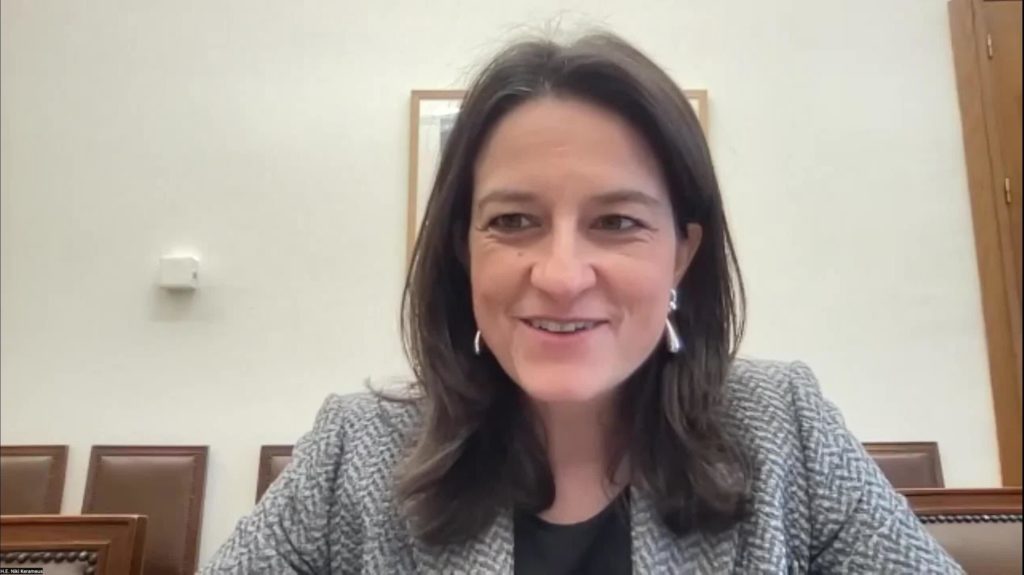
During the session, panelists attempted to distill a “silver lining” for the sector and recognize the immense gains in flexibility, innovation, resilience and, ultimately, human connection that were achieved during the COVID-related shutdowns. Some takeaways:
- Minister Kerameus and Dr. Gandolfo shared how Greece’s incredible response to COVID-related education disruption accelerated the rapid provision of digital infrastructure, skills, and content; and how socio-emotional learning gained more prominence in the curriculum via the new “Skills Labs” mandatory module.
- The unforeseen shift to online teaching and learning necessitated new avenues for teacher-student interaction and new approaches to assessments. For instance, Prof. Oren Pizmony-Levy shared how he had to rework his exams for the online environment. Because he could not proctor the exam, he reframed it as an open-book assessment to test students’ application of principles, rather than their memorization of equations. This a) resulted in a more thorough assessment of their understanding of the content and b) demonstrated greater trust in his students.
- On the one hand, the COVID crisis prompted teachers to speak and teach more openly about other global issues, such as climate change; on the other hand, activities traditionally associated with this type of education for sustainable development, such as a school recycling program, had to be put on hold or were deemphasized in light of lost learning in areas like literacy and numeracy.
- From the teacher’s perspective, Melissa Pritchard reported a greater attention to teaching soft skills—particularly empathy and flexibility—as a result of COVID shutdowns. Ms. Pritchard also noted that COVID-induced online teaching expanded her community of support, prompting more involvement from parents, the new availability of free and open resources, and coaching from an online network of fellow teachers around the world. COVID humanized teachers and the teaching profession, she said.
Panelists concluded that the greatest “silver lining” from COVID was not technology adoption itself, but stakeholders’ improved flexibility, innovation, creativity, and collaboration; as well as the realization that, having been forced to pivot so quickly, the changes were actually easier than expected.
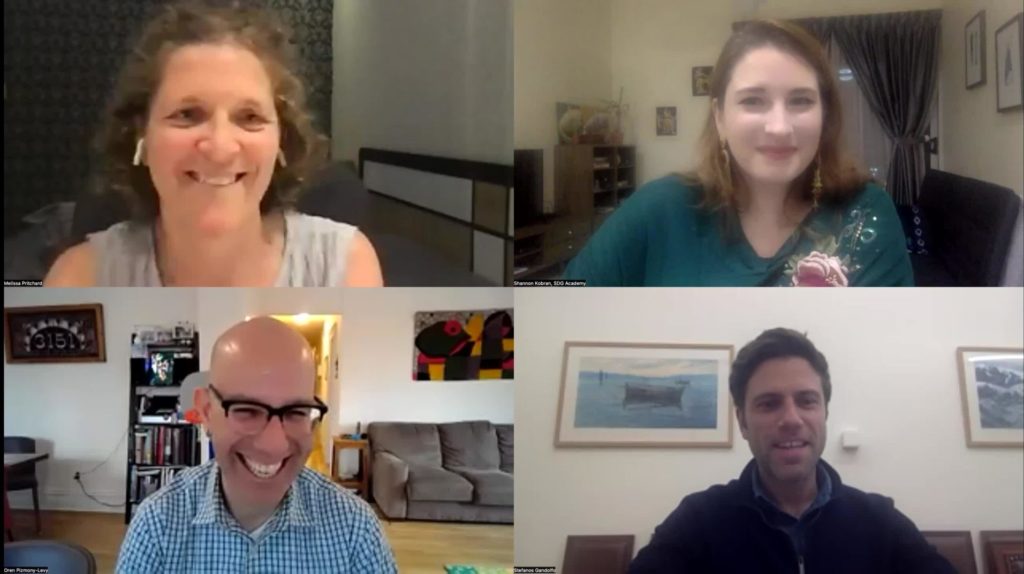
SDSN’s post-session summary and recommendations submitted to the Forum organizers urged stakeholders to:
- Invest in digital infrastructure, skills development, and content to increase access to education, flexibility of learning, improved communication and collaboration, and resilience to shocks.
- Create space for teachers to innovate and experiment with pedagogy, assessments, teaching materials, and—where appropriate—curriculum. As Prof. Pizmony-Levy said, “Teachers are the most valuable part of the system. Teachers know how to teach, they are the experts in the room, and we have to trust them.”
- Embrace new opportunities for collaboration! The private sector can provide infrastructure and content. Classrooms can bring in guest speakers or engage in collaborative teaching (even internationally) via technology. Teachers can join vast online communities for coaching and support.
- Make learners your partners. Students, particularly digital natives, have a lot of good ideas on how to engage around and learn important topics, and can be an important resource for innovating education.
- Across all subjects, in all levels, curricula should prioritize “soft skills” such as critical thinking, problem solving, communication, collaboration, and empathy, because these are the traits that have allowed—and will continue to allow—learners to adjust, adapt, and innovate in a fast-paced, uncertain world.
- Understand that digitalization is a means to an end, not an end in itself. The provision of technology alone will fail to achieve education goals if it is not accompanied by policies to increase training, flexibility, and community.
Watch the session below or in the SDG Academy Library.
